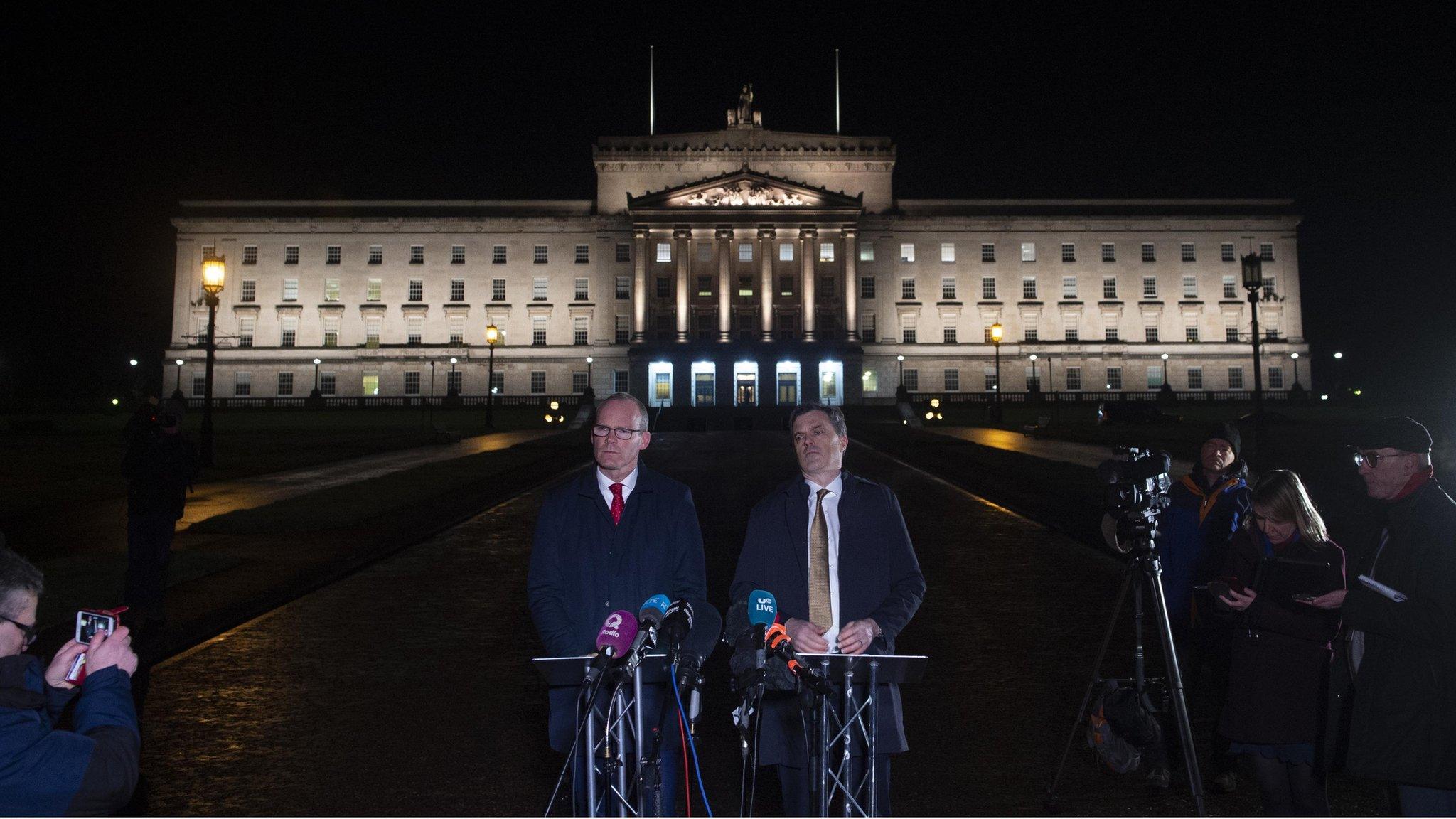Stormont marks one year of political stalemate
- Published
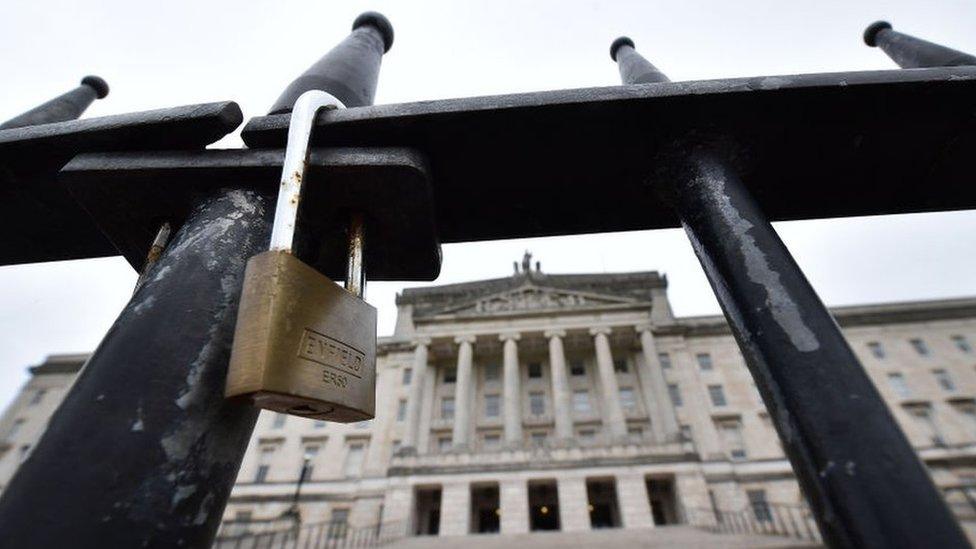
Cast an eye towards Stormont and nothing looks out of place - the gates are open and the lights are on.
But inside there has been a political power outage that has now hit the one-year mark.
It has been 365 days since the Democratic Unionist Party (DUP) formally exited the executive over its opposition to the Northern Ireland Protocol.
When Paul Givan announced his resignation as first minister he said he hoped that a resolution allowing his party to re-enter government would be found soon.
Paul Givan says being first minister has been the "privilege of my life" during his resignation speech
But, depending on your definition of soon, it could be argued that a 12-month political stalemate was not what he or his party had in mind when they began their walkout.
Despite speculation just days ago about a new deal on the protocol being close, London and Brussels have yet to announce a breakthrough.
Mr Givan, who spent eight months as first minister, insists the DUP did the right thing.
"Had we not taken action we were continuing to drift and people weren't taking the concerns of unionists seriously," he said.
"I didn't want that to be the case but people didn't listen.
"Now they are listening, now they are engaging and now they need to produce a result we can buy into and unionism can support."
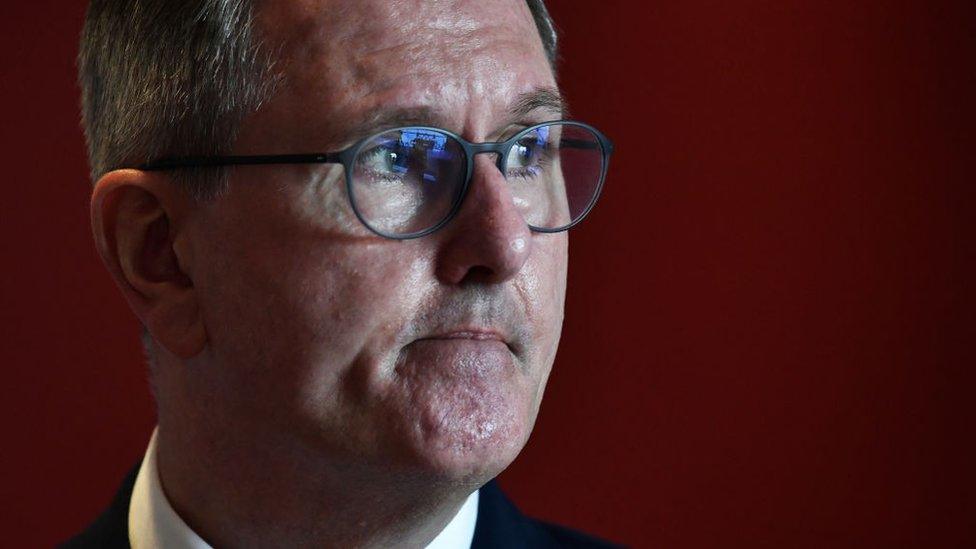
Sir Jeffrey Donaldson's DUP has maintained its protest against the Northern Ireland Protocol
Power in Number 10, though, has switched hands several times since the executive collapsed last February.
Boris Johnson was ditched by the Conservatives in favour of former Foreign Secretary Liz Truss who led the protocol bill to Parliament - legislation that would have allowed UK ministers to scrap large parts of the arrangements if negotiations with the EU fell apart.
After her short-lived stint as prime minister, Rishi Sunak entered the frame and, instead of pursuing the contentious protocol bill, set about trying to change the mood with EU officials.
This week there have been rumours and reports that, if necessary, the new prime minister is prepared to do a deal with Brussels that the DUP may not support.
The official line from Number 10 is it wants a deal that will ultimately help restore power-sharing at Stormont.
But behind the scenes the thinking could be quite different, according to Ailbhe Rea from Politico's Westminster Insider podcast.
"It's not just the people around Rishi Sunak but a wider feeling among different bits of the Conservative Party that when they're being honest, it would be difficult to get a deal the DUP would be happy with," she said.
"Even people from the Liz Truss era would know that is a difficult sell.
"Brexit and the protocol are not what Rishi Sunak wants to be focused on, it's like a barnacle on the bottom of a boat the government just wants to get rid of."
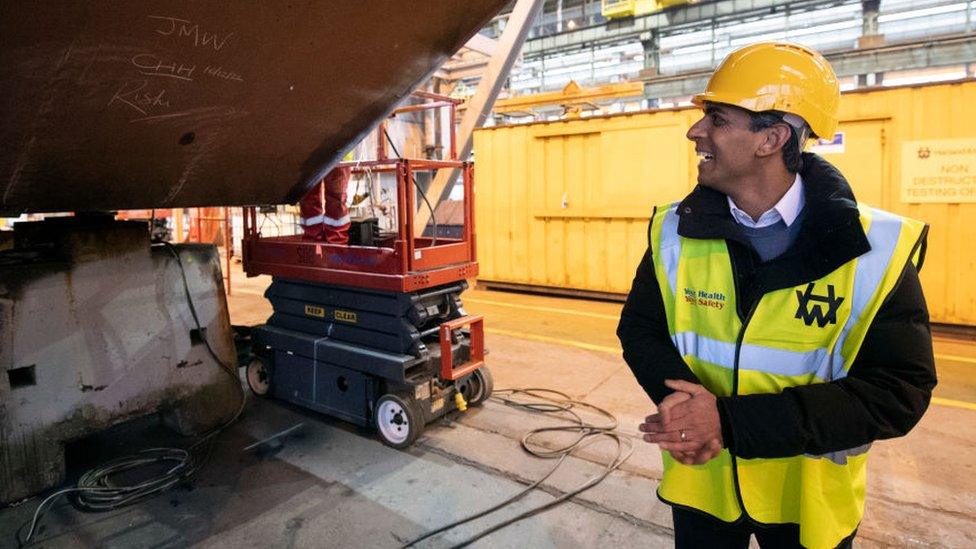
Prime Minister Rishi Sunak visited Northern Ireland in December
Other factors will also affect any decision DUP leader Sir Jeffrey Donaldson takes about whether to go back into government - not least an upcoming council election in May, according to the Belfast Telegraph's political editor Suzanne Breen.
"He is a devolutionist," she said.
"He is actually, despite what his critics say, a political moderate, but he doesn't want to do so at the expense of his party losing votes and plummeting in the polls.
"He knows that Jim Allister and the TUV [Traditional Unionist Voice] are not a spent force and are still very much breathing down his neck."
While the DUP has said it feels no pressure to end its protest over the protocol, at the same time protesters across the public sector have been putting pressure on Stormont for extra financial support.
Sinn Féin, now the largest party in the assembly after last year's election, has said it is being blocked from providing that help.
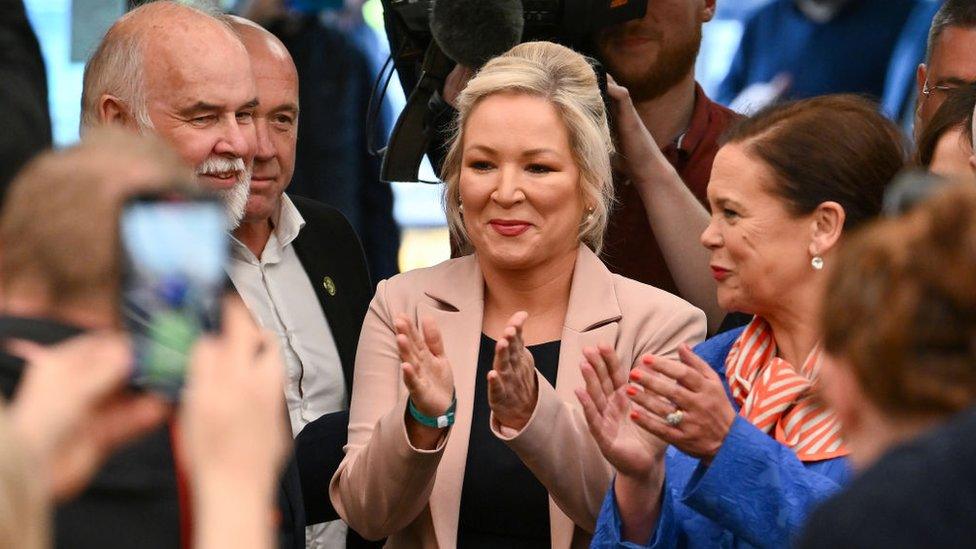
Sinn Féin's Michelle O'Neill (centre) was entitled to become first minister after last year's assembly election
"People rightfully want their elected politicians to go in and do the job that they should be doing," the party's Belfast North MP John Finucane explained.
"One year on the DUP should be reflecting on what they've actually achieved with their walkout because all they have achieved is punishing workers, families and those impacted by the health service more than anybody else."
Public confidence
As one of the newly elected assembly members last May, Kate Nicholl from the Alliance Party has yet to spend a day doing her full job.
She said she's still hopeful that the institutions will return but, like many others, cannot hazard a guess as to when that might be.
"Devolution matters and ministers with local budgets delivering for local people matters," said Ms Nicholl.
"I believe we will get it up and running but I am very concerned about the long-term damage the absence of an assembly has had, not just in terms of being able to legislate and strategise, but the impact it has on public confidence in us."
Of course, it took three years to sort out the previous stalemate that ended in January 2020.
We are still some way off equalling that recent record, but few would bet on a resolution coming much quicker this time.
- Published3 February 2022
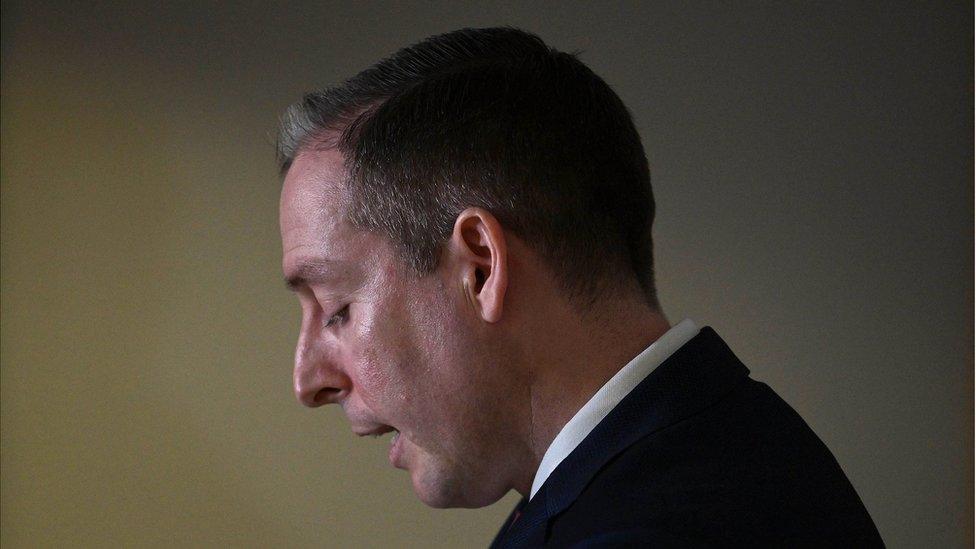
- Published1 February 2023
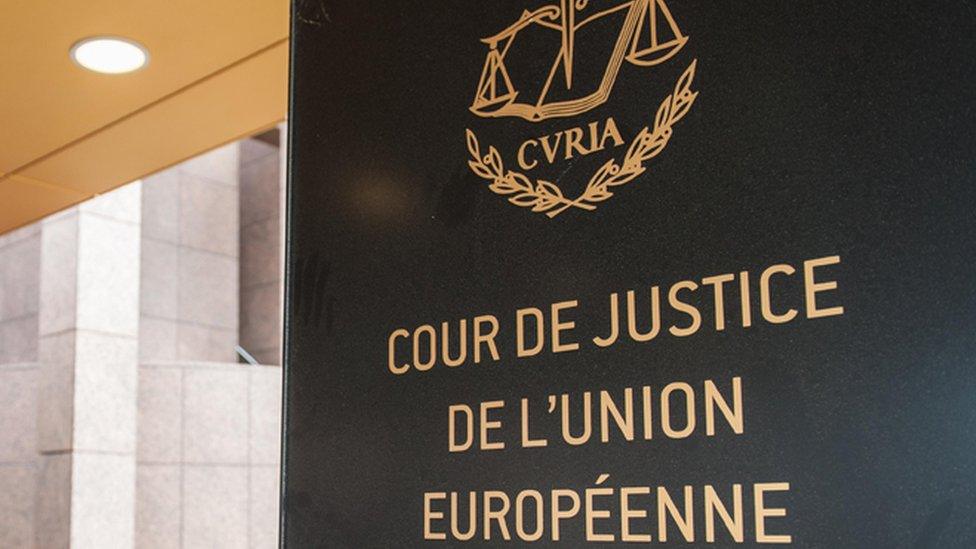
- Published2 February 2024

- Published8 May 2022
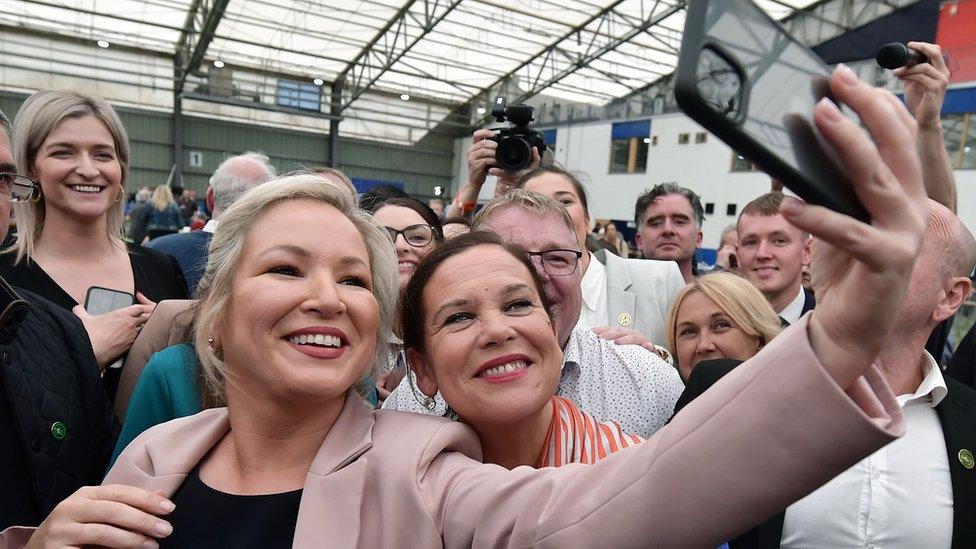
- Published10 January 2020
